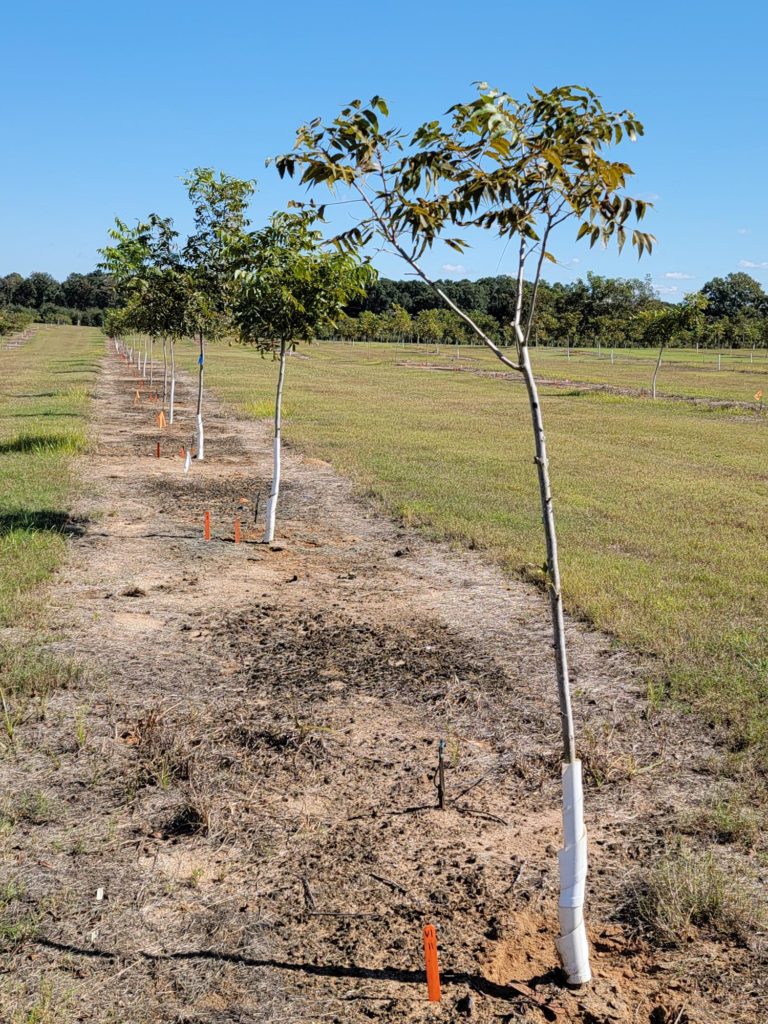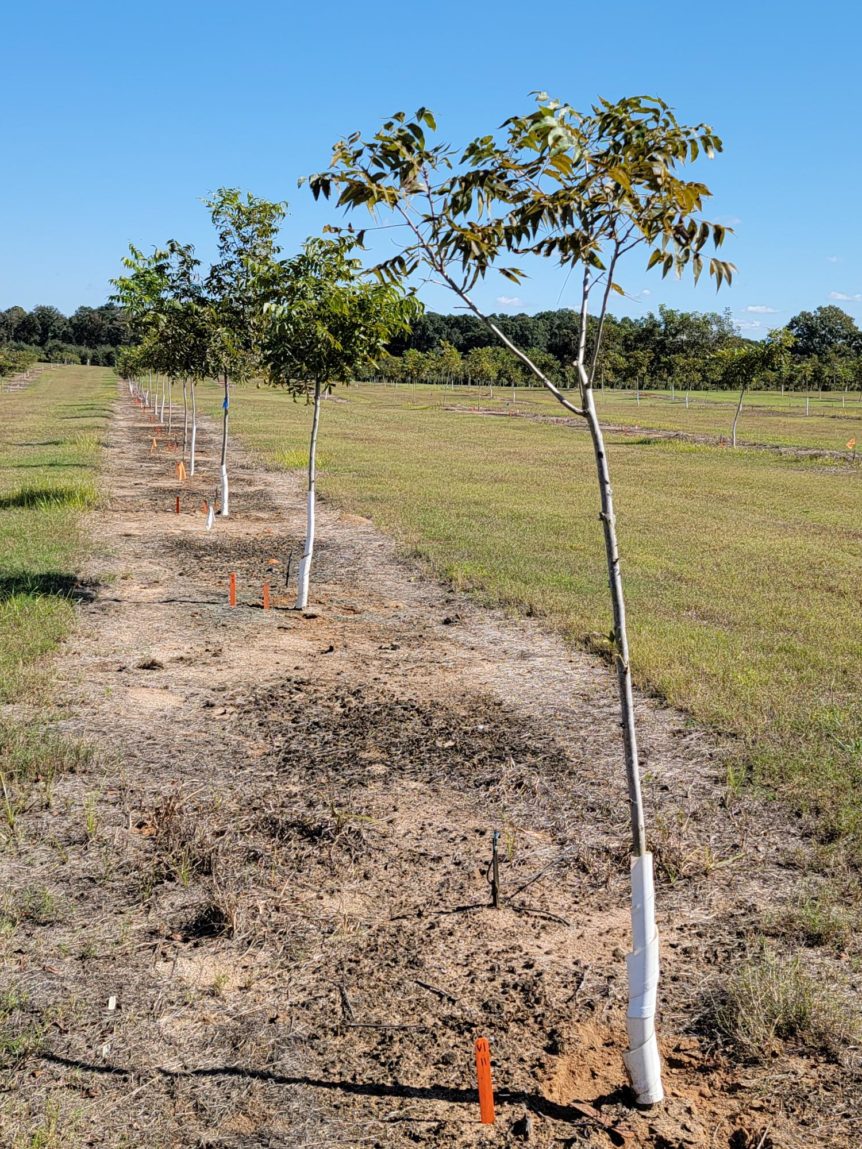By Clint Thompson
Nematodes may be silent pests, but they can wreak havoc on pecan trees if left unchecked.

Tim Brenneman, a plant pathologist with the University of Georgia, said the microscopic pests are common in pecan orchards across Georgia. Growers may not think much about them because they are underground. But they have a proven track record to devastate trees, especially younger ones.
“What brought it to light was we were having higher levels on young trees, and they can kill young trees. That’s why we started working on it. What we were seeing out of some orchards were areas that just weren’t growing off. You start digging these trees up to replace them and realize you’ve got a serious issue there,” Brenneman said. “Most growers, if they’ve ever done row crops, they’re familiar with nematodes on cotton and peanuts. It would be like growing peanut or cotton year after year, non-rotated, and you keep building those levels.
“Pecans are the same way. You’re just taking a longer number of years to take that tree out and put another one in. What we were doing is using a fumigant or nematicide to knock those populations back and give the new tree a chance to get established.”
What Must Be Done?
Producers can replace the impacted trees, but they must also respond with a chemical treatment because of the nematodes’ presence in the soil. Brenneman has his preference on how growers should respond.
“I think people need to go with the non-fumigants, something that’s very easy to do. They can do it themselves, which is a whole lot cheaper,” Brenneman said. “I don’t know about totally effective, but trees where we’ve done that have shown very good response.”
Velum can be applied for the whole acre of trees at a price comparable to two or three trees with a fumigant.










